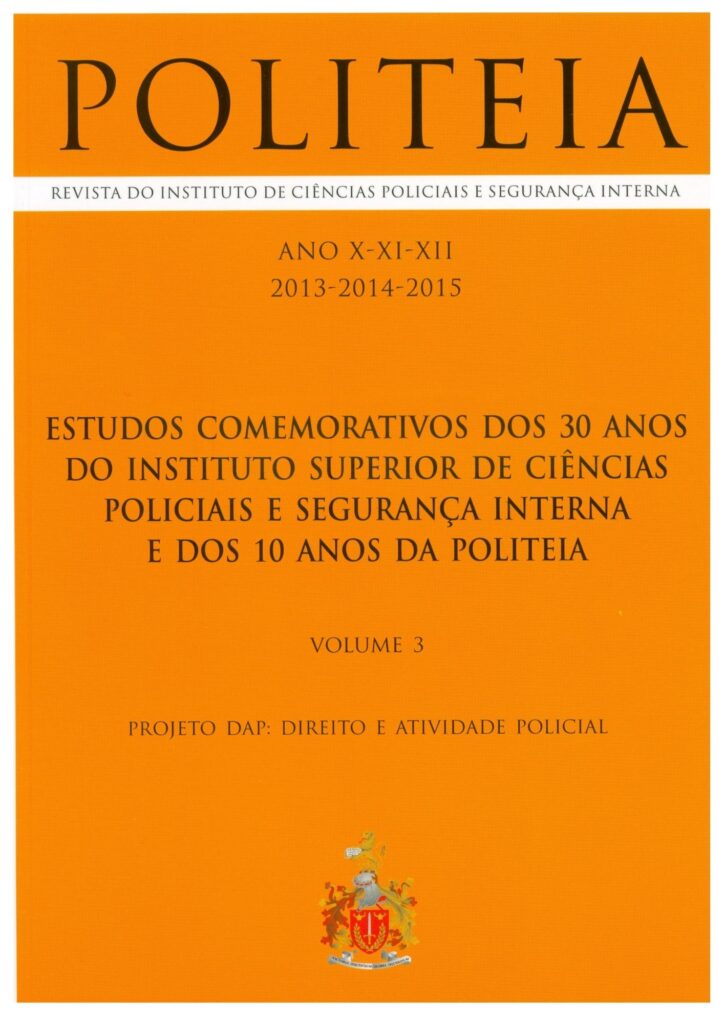Força Constitucional na Democratização da Atividade Policial: o projeto audiência de custódia no Brasil
Key Words
O presente trabalho trata de dois casos particulares que conduzem ao tema presente: a força constitucional na democratização da atividade policial. Os casos em questão são: (a) a prisão de um jovem em flagrante no RJ, narrado pelo professor Lênio Streck a partir de informação de seus alunos de curso de mestrado; (b) a prisão de um vendedor e ator figurante que ocorreu também no Rio de Janeiro em que este ficou 16 dias na prisão. Os dois casos darão suporte à afirmação da tentativa da corte constitucional do Brasil, o STF, em mostrar a força do direito constitucional na democratização da atuação da polícia, principalmente a partir da instituição do projeto de audiência de custódia pelo Conselho Nacional de Justiça (CNJ). É feito um estudo da implantação do projeto, bem como a apresentação de dados a respeito do crescimento da população carcerária no Brasil, com o intuito de mostrar que longe de ser uma atividade sem importância, as audiências de custódia são parte primordial no direito à liberdade de expressão por parte do preso em flagrante. Por fim, conclui-se que dada importância da polícia em entender seu papel na democracia e a sua rápida capacidade de gerar transformações sociais, é preciso equacionar a relação entre o poder coercitivo e o resguardo a direito individuais.
This paper deals with two particular cases that lead to this theme: constitutional force in the democratization of police activity. Cases in point are: (a) the arrest of a young man in the act in Rio de Janeiro, narrated by Professor Lênio Streck from information from his Master’s degree students; (b) the arrest of a seller and extra actor which was also held in Rio de Janeiro. He got 16 days in jail. Both cases will support the assertion about the attempt of the constitutional court of Brazil, the Supreme Court (STF), to show the strength of constitutional law in the democratization of the police activity, especially since the institution of the custody hearing project by the National Council of Justice (CNJ). A study of the implementation of the custody hearing project is done, and the presentation of data regarding the growth of the prison population in Brazil, in order to show that far from being an unimportant activity, custody hearings is a primordial part in right to freedom of expression by the prisoner in the act. Finally, I concluded that given the importance of police in understanding its role in democracy and its rapid ability to generate social change, we must equate the relationship between the coercive power and the protection of individual rights.
Versão original
Versão original
Outros artigos nesta edição
-
Editorial
Manuel Monteiro Guedes Valente
-
Reunião Científica Internacional: Direitos Fundamentais e Atividade Policial
Manuel Monteiro Guedes Valente
-
Força Constitucional na Democratização da Atividade Policial: o projeto audiência de custódia no Brasil
Gilson Matilde Diana
-
A Admissibilidade da Margem de Livre Decisão Policial na Proteção versus Restrição de Direitos Liberdades Fundamentais
Fábio Camelo
-
A segurança privada: limites à sua actuação num Estado de Direito Democrático
João Simões
-
La Actuación Policial y el Respeto de los Derechos Fundamentales en España como Manifestación del Dificil Equilibrio entre Libertad y Seguridad
Adán Carrizo González-Castell
-
Medidas Cautelares e de Polícia e os Direitos Fundamentais
Joel Fernandes Araújo
-
A Inspeção-Geral da Administração Interna no Controlo da Atividade Administrativa Policial
Margarida Blasco




